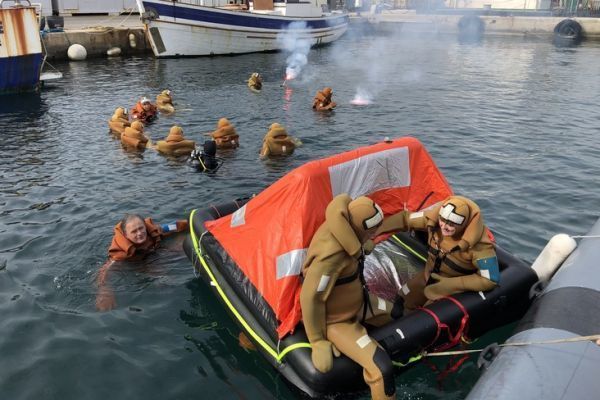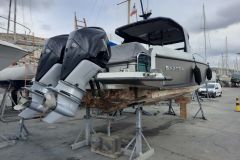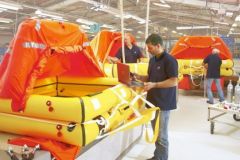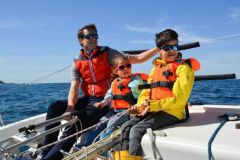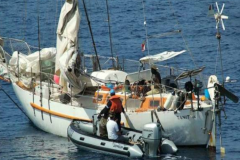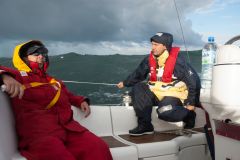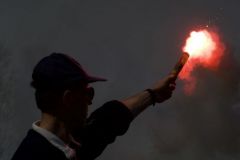A reference in safety training at sea
Founded in 2001, Survie Mer Formation is specialized in training for offshore workers, helicopter pilots and yachtsmen. Its premises are located on the base of the National Institute of Professional Diving, where the Civil Security, the COMEX, the SNSM and the CNRS cohabit, a sort of Mecca for safety at sea.
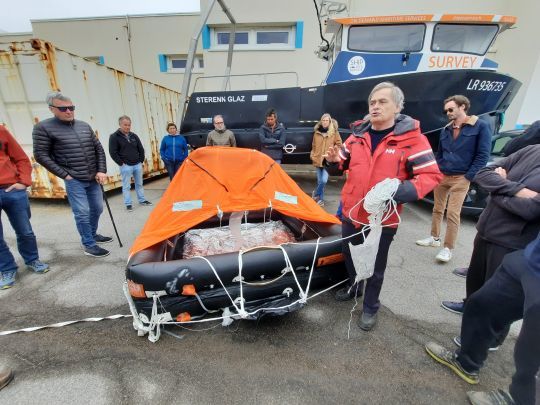
There are about ten centers in France that provide the same training, for periods varying from 2 to 3 days. And this training is more and more in demand, as Xavier Mouchet, one of the directors of Survie Mer Formation, explains:
"More and more sailing race organizers are requiring racers to take the World Sailing course. But we also welcome sailors whose goal is to go cruising, with their family or with a small crew .
Any racer, professional or amateur, who has to register in a race for monohulls or multihulls whose race rules refer to the RSO, is concerned.
According to article 6 of the RSO, for crewed races, a minimum of two people must be trained and at least 30% of the crew. For a Mini crew, 100% of the crew must be trained."
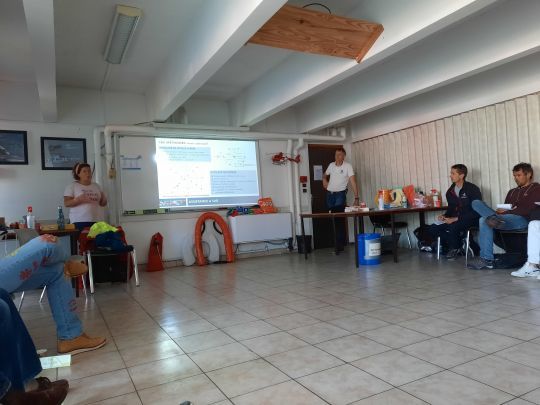
The teaching team is made up of a dozen trainers, all of whom have extensive experience in marine rescue. Merchant Navy officers, SNSM boat captains, firemen, emergency doctors: all these professionals have complementary experiences to pass on to the trainees.
The trainer details: " We are recognized by organizations such as AFNOR, IMCA and IASST, which allows us to have feedback on accidents at sea. In sailing, the traceability of accidents is still quite limited, but it is progressing ."
A 3-day training course
" The medical field is like hoisting the sails. To know how to do it, you have to practice " we are told from the first minutes of the course.
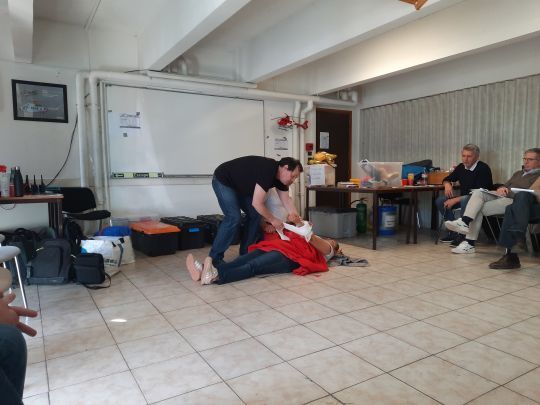
And we will not be idle during these 3 days. The team alternates in a sustained rhythm theoretical phases and practical exercises. All this with meticulousness, malice and professionalism. And as Xavier says :
"The training team takes into account the close links between equipment and human preparation for critical situations. The professional experience and pedagogy of the trainers on these subjects are assets so that everyone can leave with convictions and practices that are both accurate and well remembered ."
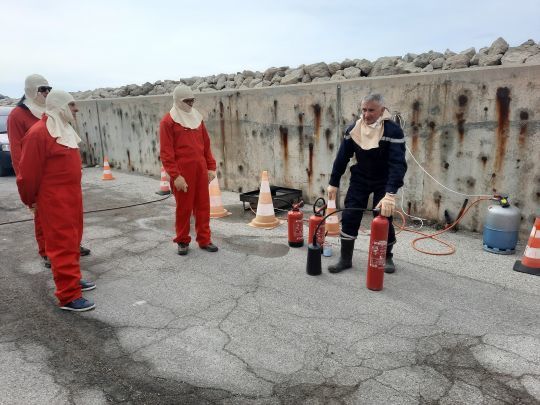
During the course, participants learn how to assess risks, implement preventive measures, respond effectively to emergencies and use safety equipment such as life jackets, fire extinguishers, life rafts, beacons and flares.
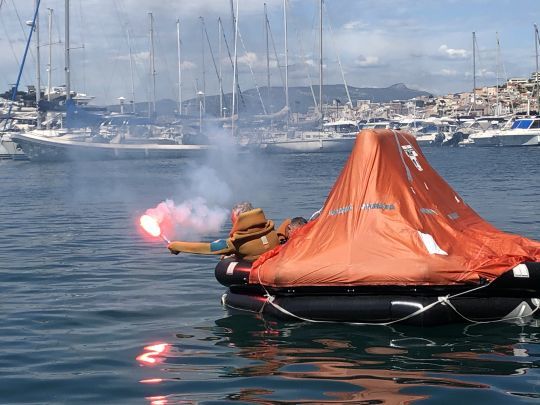
Part of the training takes place in the water, in a survival suit, in order to carry out practical exercises. This module is intended to learn how to inflate a raft, organize life on board and keep the crew together. A helicopter hoisting simulation is also carried out with the port's crane.
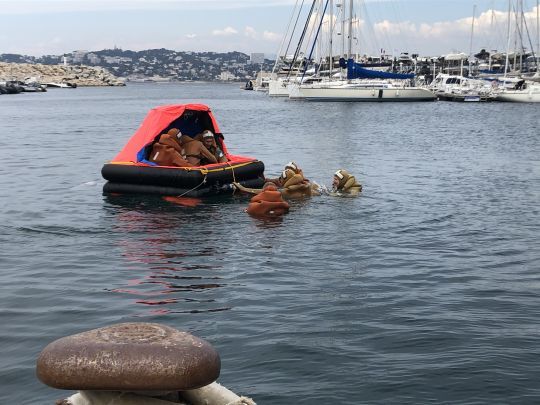
Learn first aid on a boat
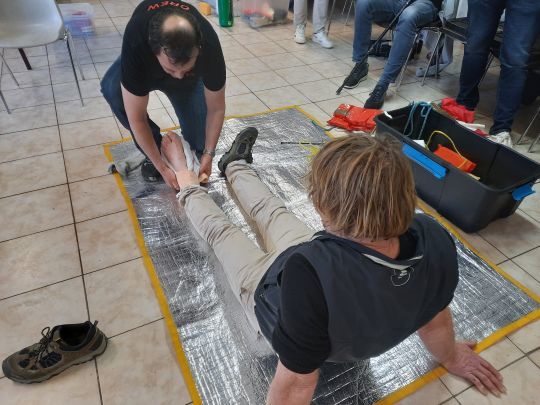
The medical module, taught by doctors specialized in maritime medicine, provides solutions to be implemented in case of physical or psychological problems on a pleasure boat. Fracture, open wound, haematoma, trauma, discomfort: everything is done to teach the trainees the procedures to follow in a crisis situation.
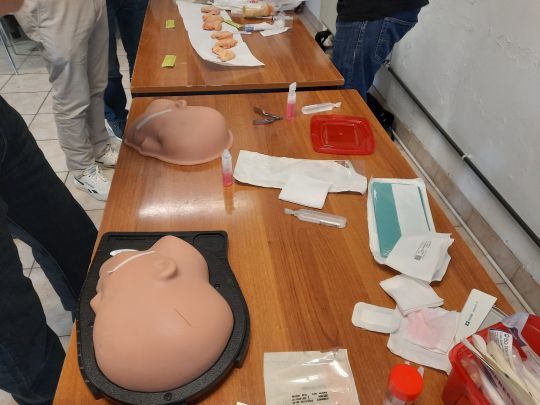
Whether it's taking a pulse, placing staples, performing cardiac massage or lancing an abscess, hands-on practice of these medical procedures reduces the apprehension that non-medical personnel feel when faced with stressful situations.
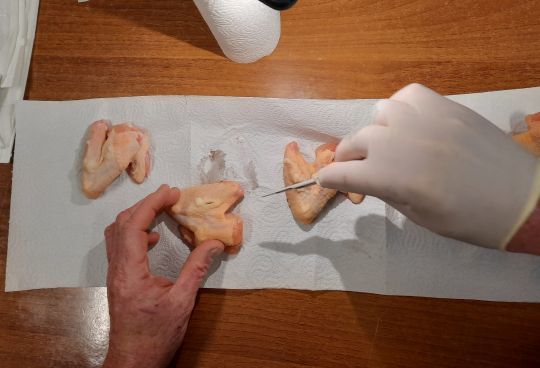
Training that should be mandatory
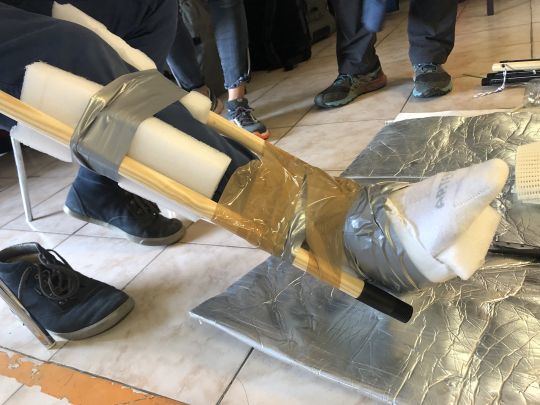
If it is now compulsory to participate in a majority of offshore races, the World Sailing should be generalized to all boaters. Learning the different procedures to a majority of sailors would facilitate the work of the rescue services, especially during the summer periods. The medical module, if it is logically adapted to yachtsmen, is also applicable on land.
